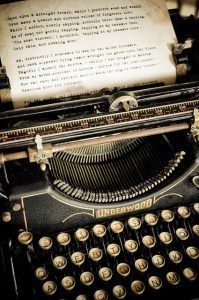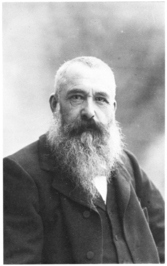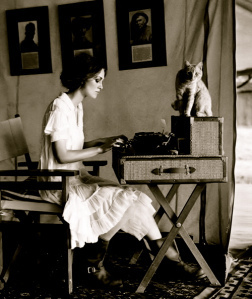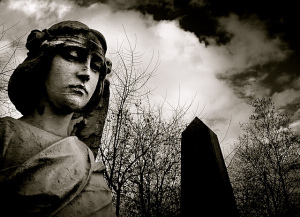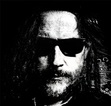R.M. Engelhardt's Blog: Burn Brightly, page 32
May 14, 2013
WRITER
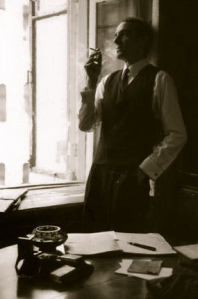
Writer
These days
Everyone
Calls themselves
A writer
But unless
You have spent
Most of your life
Searching for
The perfect words
Unless you have lost
Hours, years & moments
Of sleep, unless you have
Stalked, loved every image
In your mind and have
Chased it down like
A mistress, or a woman just
Out of reach
Then
You are not
A writer
Unless you
Have truly
Bled the ink
And if you
Are serious about it
And it is your only ambition?
You will.
R.M. Engelhardt
2013


CAST
From the wreckage
And the great unknown
Come I,
Cast back unto it
Again
From beneath, the mire of
All good works
Which once wrought heaven,
You, closer to thyself
And…thy sight.
The poet
Now lost
Without words
Cast in shadows
From the edge of stars
“Silence.”
__________________
~ R.M. Engelhardt, 2009


Poetry is the kind of thing poets write.
~Robert Frost
Ma...
Poetry is the kind of thing poets write.
~Robert Frost
Man, if you gotta ask, you’ll never know.
~ Louis Armstrong


May 13, 2013
“Every day I discover
more and mor...
“Every day I discover
more and more
beautiful things.
It’s enough to drive one mad.
I have such a desire
to do everything,
my head is bursting with it.”


May 12, 2013
The Mystery of Vachel Lindsay
How did the most visible poet in America—and a father of the Beats—become nearly forgotten?
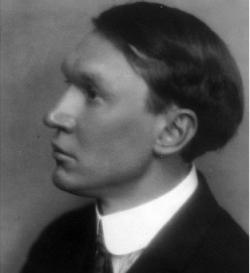
Vachel Lindsay Photograph by Victor George.
To readers who have enjoyed these monthly “Classic Poem” discussions: In order to keep them going while not driving the poetry editor over the edge and at the same time to introduce some different voices and ideas, we will from time to time have a guest columnist present a classic poem. That enhancement begins this week with T.R. Hummer.—Robert Pinsky
Early in 1914, having heard a young and unknown poet perform in Chicago, W. B. Yeats approached him and asked, “What are we going to do to restore the primitive singing of poetry?” That young poet was Vachel Lindsay. Yeats’ recognition of something unusual in the style of the performance was the beginning of a strange episode in American literary history.
Even dedicated readers of poetry in our own time can be divided into two groups: those who know Vachel Lindsay and his work, and those who don’t. When I was in my teens and 20s, the first group was by far the larger; now the latter is, and the difference in magnitude between them seems to grow exponentially with every passing year.
My own interest in Lindsay, therefore, seems a bit perverse even to me. I find the mystery of his ascendency—in the 1920s he was arguably the most visible poet in America, whose performances were witnessed, and applauded, by thousands, Yeats among them—and his complementary disappearance irresistible.
Success is instructive; abject failure is arguably even more so, and Lindsay embodies both. In the 1940s, ’50s, and ’60s his work was widely anthologized and taught, until (perhaps) it became embarrassingly apparent that one of his foundational poems, “The Congo,” is undeniably racist (“Fat black bucks in a wine-barrel room,/ Barrel-house kings, with feet unstable”); interest began to cool, until he was evicted from The Norton Anthology, and from many, if not most, classrooms.
However, more than political correctness was at stake in Lindsay’s eclipse. The racism of “The Congo” is almost certainly unintentional, an epiphenomenon of a late Romantic valorizing of the “primitive”; even Yeats was heir to this problematic attitude.
A native of Springfield, Ill., Lindsay began his career as a self-avowed “Poe crank,” an acolyte of William Blake, and a firebrand populist/socialist figure, who—unknown to a wider world, but well known at home, though not as a poet—handed out flyers to his neighbors, chastising them for their materialistic conservatism. An early poem reveals him in this mode:
Click the arrow on the audio player below to hear T.R. Hummer read Vachel Lindsay’s “Why I Voted the Socialist Ticket.” You can also download the recording or subscribe to Slate’s Poetry Podcast on iTunes.
“Why I Voted the Socialist Ticket”
I am unjust, but I can strive for justice.
My life’s unkind, but I can vote for kindness.
I, the unloving, say life should be lovely.
I, that am blind, cry out against my blindness.
Man is a curious brute—he pets his fancies—
Fighting mankind, to win sweet luxury.
So he will be, though law be clear as crystal,
Tho’ all men plan to live in harmony.
Come, let us vote against our human nature,
Crying to God in all the polling places
To heal our everlasting sinfulness
And make us sages with transfigured faces.
There is a straightforwardness about this little poem, and a sincerity (naive? arguably so) that is very different from the work he presented to the public at his peak. Such poems as “General William Booth Enters Into Heaven” and “The Chinese Nightingale,” among the core of the work he read in barnstorming tours across America, became the basis for a performance style Lindsay called “The Higher Vaudeville,” and it was largely on performance that his fame depended.
Vaudeville itself is a very instructive model for Lindsay’s rise and fall. It was the indispensable mode of entertainment in America—until it wasn’t. Looking back on it now, it may be hard to fathom why anyone was entertained by those old jokes, those old songs—except of course then they weren’t old, and if they are clichés now, they are so by reason of their success. As much as vaudeville was built on the chassis of minstrel shows, and still included blackface in its repertoire, so Lindsay brought along a ton of baggage from the heart of America in his presentations, much of it beyond his power to comprehend much less control, and in the end it defeated him. Already by 1922 he was worn out by the demands of audiences for the same material over and over; like a one-hit rock band, he was not “allowed” to create, but only to repeat. In a letter late that year, he wrote:
One composes it not by listening to the inner voice and following the gleam—but by pounding the table with a ruler and looking out the window at the electric signs. Also by going to vaudeville, which I have all my life abhorred. I at last grasp what those painted folks are up to.
Lindsay epitomizes a cultural struggle between “high” and “low,” between performative modes and the purely textual, and though a thread of influence undeniably carries forward from him into the future (he is certainly one of the fathers of the Beat poets), he himself foundered there. Though the terminology did not exist in his time, he attained the status of a pop culture icon, and the socialist-mystic in him abhorred what he had become.
On the vaudeville stage, Lindsay had a contemporary, the saxophonist Rudy Wiedoeft, whose career has an arc eerily similar to Lindsay’s own. He was a technical master, but the music he played is very hard for us to hear on its own terms, so clichéd and melodramatic does it seem in retrospect. Yet his influence was ubiquitous in the 1920s and is with us still as it was transmitted to the likes of Bix Beiderbecke’s saxophonist Frank Trumbauer and from him to Lester Young. Wiedoeft’s music set off a saxophone craze in the ’20s, but Wiedoeft, a man who could simultaneously play virtuoso saxophone and do cowboy rope tricks on stage, died forgotten. In a late poem, Lindsay writes if not directly of Wiedoeft then certainly of the music he created, and in so doing condemns the very milieu—“none but an assassin would enjoy this horn”— that for a while made Vachel Lindsay a cultural phenomenon.
“A Curse for the Saxophone”
When Cain killed Abel to end a perfect day,
He founded a city called the city of Cain,
And he ordered the saxophones to play.
But give me a city where they play the silver flute,
Where they play the silver flute at the dawn of the day.
Where the xylophone and saxophone and radio are mute,
And they play the Irish Harp at the end of the day.
When Jezebel put on her tiaras and looked grand,
Her three-piece pajamas and her diamond bosom-band,
And stopped the honest prophets as they marched upon their way,
And slaughtered them and hung them in her hearty wholesale way,
She licked her wicked chops, she pulled out all her stops,
And she ordered the saxophones to play.
But give me a Queen whose voice is like the flute,
Queen of a city where the saxophone is mute,
Who can dance in stately measure, in an honest, solemn way,
Where they play the Irish harp at the end of the day.
For the Irish Harp moves slowly, though the Irish heart beats fast
And both of them are faithful to their music at the last,
And their silence after music is the conqueror at last.
What did Judas do with his silver 30 pieces?
Bought himself a saxophone and played “The Beale Street Blues”
He taught the tune to Nero, who taught it to his nieces
And Rome burned down to the saxophones that played “The Beale Street Blues.”
Now it comes by wireless, and they call it news!
When Henry the Eighth married his last wife,
He carried underneath his coat a well-edged butcher knife,
But he affected to be glad, affected to be gay,
And he ordered the saxophones to play.
But give me a wedding where the silver flutes at dawn
Bring visions of Diana, the waterfall and fawn!
Give me a wedding where the evening harp is singing,
And Irish tunes bring Irish kings, their strange voices ringing.
Like songs by William Butler Yeats or noble Padraic Colum,
Give me a wedding that is decent, sweet and solemn,
Not based on brazen dances and hysterical romances,
Where they order the saxophones to play!
When John Wilkes Booth shot Lincoln the good,
He hid himself in a deep Potomac wood,
But the Devil came and and got him and dragged him down below,
And took him to the gate—and the rest you know,
Twenty thousand pigs on their hind legs playing
“The Beale Street Blues” and swaying and saying:
“John Wilkes Booth, you are welcome to Hell,”
And they played it on the saxophone and played it well.
And he picked up a saxophone, grunting and rasping,
The red-hot horn in his hot hands clasping,
And he played a typical radio jazz;
He started an earthquake, he knew what for,
And at last he started the late World War.
Our nerves all razzed, and our thoughts all jazzed,
Booth and his saxophone started the war!
None but an assassin would enjoy this horn.
Let us think of the Irish flute in the morn,
And the songs of Colum and the songs of Yeats,
And forget our jazzes and our razzes and our hates.
Let us dream of the slow great seraphim wings
of the good and the great sweet Irish kings!


May 11, 2013
Sophie Podolski
Sophie Podolski (8 October 1953 – 29 December 1974) was a Belgian poet and graphic artist. She published only one book during her short lifetime, Le pays où tout est permis (The Country Where Everything Is Permitted), in which the poems were reproduced in her own artistic handwriting. Podolski, studied graphic design at the Académie de Boitsfort and was associated with the artistic community at Montfaucon Research Center. Podolski suffered from schizophrenia and spent time in psychiatric clinics in Paris and Brussels. She attempted suicide in Brussels on 19 December 1974 and died 10 days later as a result.
Podolski left to Marc Dachy a number of unpublished poems and graphic artworks. Her work entitled Sophie Podolski Snow Queen was posthumously published as a special issue (no. 6, 1980) of the magazine Luna-Park. Her poetry was much admired by the novelist and poet Roberto Bolaño, who referenced Podolski in his novels The Savage Detectives”, “Antwerp”, and Distant Star, and in his short story “Dance Card.”


May 10, 2013
Nick Cave
I don’t claim to understand the troubles that you’ve had.
But the dogs you say they fed you to lay their muzzles in your lap and the lions that they led you to lie down and take a nap.
The ones you fear are wind and air…
and I love you without measure…
it seems we can be happy now, be it better late than never.
Sweetheart, come.
Sweetheart, come to me.
~ Nick Cave and The Bad Seeds, Sweetheart Come


May 8, 2013
Writing Is …
May 7, 2013
Archibald MacLeish
Ars Poetica
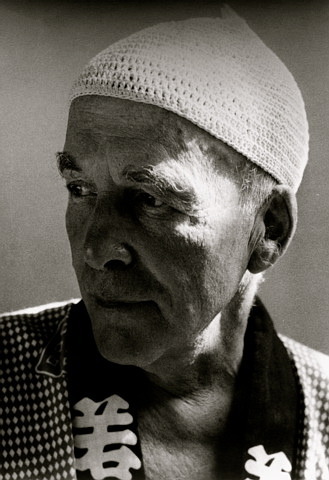
A poem should be palpable and mute
As a globed fruit,
Dumb
As old medallions to the thumb,
Silent as the sleeve-worn stone
Of casement ledges where the moss has grown—
A poem should be wordless
As the flight of birds.
*
A poem should be motionless in time
As the moon climbs,
Leaving, as the moon releases
Twig by twig the night-entangled trees,
Leaving, as the moon behind the winter leaves,
Memory by memory the mind—
A poem should be motionless in time
As the moon climbs.
*
A poem should be equal to:
Not true.
For all the history of grief
An empty doorway and a maple leaf.
For love
The leaning grasses and two lights above the sea—
A poem should not mean
But be.


May 6, 2013
“If I got rid of my demons, I’d lose my angels.”
~ T...
Burn Brightly
~ R.M. Engelhardt ...more
- R.M. Engelhardt's profile
- 23 followers


